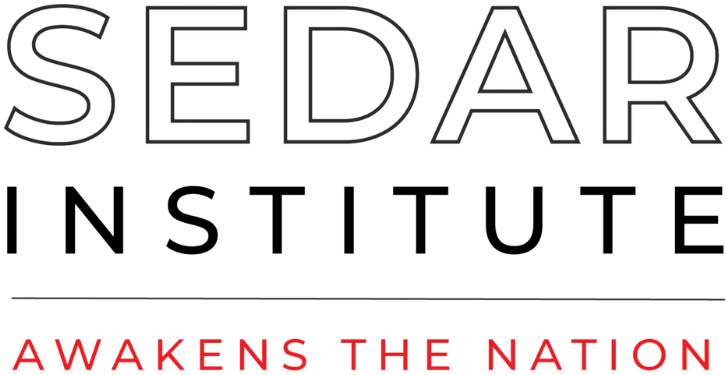
Author
Ooi Kok Hin
The regulation of political financing stands as a cornerstone of a multiparty democracy, where political parties and candidates need to raise funds to compete and campaign during elections, and also operational expenses during non-election cycles. This is important in ensuring transparency, fairness, and integrity in electoral processes. However, in Malaysia, the absence of comprehensive laws governing political financing poses significant challenges to the democratic framework. In particular, the Malaysian political landscape grapples with critical gaps in regulatory oversight, allowing for the unchecked influence of private funding and potential distortions in political agendas by permitting wealthy donors and corporations to exercise disproportionate influence over parties and candidates.
This article navigates through the intricacies of Malaysia’s political financing framework, shedding light on the pressing need for reform and regulatory overhaul. From the absence of dedicated legislation governing political finance to the challenges posed by unregulated campaign expenditures and the influence of wealthy donors, each facet underscores the urgency of addressing these deficiencies to safeguard democratic principles. Subsequently, this article delves into proposed recommendations aimed at addressing these challenges, ranging from the introduction of comprehensive laws to regulate political finance to the implementation of public funding mechanisms to mitigate the influence of private contributions.
The Coalition for Clean and Fair Elections (BERSIH) has been advocating political financing legislation as a way to stabilise the democratic transition in Malaysia since 2018. The infamous 1MDB scandal has exposed how easily political leaders can misappropriate illicit funds— sometimes coming from foreign sources or state resources—for electioneering and distribute them for political patronage. Together with other civil society organisations and think tanks such as the Institute for Democracy and Economic Affairs (IDEAS), BERSIH conducted research, high-level lobbying, and grassroots consultation to educate the public and mobilise support for a political financing legislation. Nonetheless, this is not the first time civil society has called for a political financing legislation. There have been multiple attempts in the past, which received varying levels of political support, but did not materialise in the creation of a bill.
A history of civil society advocacy for political finance legislation in Malaysia
Year | Event |
May 2010 | Transparency International Malaysia (TI-M) launches a book on reforming political financing in Malaysia. The book is based on pioneering work undertaken since 2009 on the financing of politics in Malaysia. The project was supported by Konrad-Adenauer-Stiftung. |
May 2011 | TI-M submits a memorandum on Reforming Political Financing addressed to the prime minister Najib Razak. |
August 2015 | The Dewan Rakyat appoints the Special Select Committee on Electoral Reform on 3 October 2011 to study matters related to the election process in Malaysia. The Committee is given a six-month time frame to complete its report on improving the electoral system. |
December 2015 | G25, BERSIH and academics call for political financing reforms. |
August 2016 | The Special Select Committee publishes its full report. |
October 2016 | Najib mulls campaign finance reforms. |
March 2018 | Pakatan Harapan (PH) opposition manifesto Promise 18:
o Political parties that qualify will receive annual funding from the Government according to a formula that is transparent and consistent o All political contributions must be from sources that can be identified o Political parties must submit audited financial report every year o Political parties cannot have assets in excess of RM1 billion o Government-owned companies are not allowed to make political contributions |
September – October 2019 | Prime minister Mahathir Mohamad and minister in the PM’s department Liew Vui Keong announce that the Political Funding Bill will be tabled in the following year. |
September 2020 | The Electoral Reform Committee submits its report to prime minister Muhyiddin Yassin |
March 2021 | BERSIH publishes a report titled “Removal or Reform: Charting The Way Forward for Malaysia’s Constituency Development Funds.” |
April 2022 | An All-Party Parliamentary Group (APPG) on Political Financing is formed with a secretariat chaired by IDEAS. |
August 2023 | APPG on Political Financing releases Political Financing Bill to the public. |
September 2023 | The cabinet outlines 7 considerations for the Political Financing Bill to be referred to the Parliamentary Special Select Committee. |
The State of Political Financing Regulation
Political financing in Malaysia is severely lacking in regulation, with no comprehensive laws overseeing the flow of funds for political entities. The absence of transparency regarding donations fosters corruption and favouritism. Addressing this issue requires a complete overhaul of existing legislation to enhance accountability and sustainability. This article examines political financing in Malaysia from two angles: funds for operational purposes and electoral campaigns. The disparity in resources, particularly evident in election spending, favours larger parties. The absence of legal constraints on political donations exacerbates this inequality. To foster a robust democracy and rebuild public trust, comprehensive regulations governing political financing are essential. Currently, Malaysia lacks such legislation.
The current legal structure governing political financing consists of fragmented regulations dispersed among various laws, including the Election Offences Act 1954, Societies Act 1966, and The Malaysian Anti-Corruption Commission Act 2009 (MACC Act 2009). Oversight over the utilisation of Constituency Development Fund allocations by elected representatives is absent. There is no mandate for political parties and candidates to disclose donations, nor are there any limits on such contributions, whether from domestic or international sources. The absence of reporting requirements and independent audits for party financial records is particularly glaring.
Thus, the absence of a political financing law is a matter that needs to be addressed urgently.1 Despite advocacy efforts from civil society and pro-reform members of parliament, a new law to regulate political finance has not been enacted as of February 2024.
- Candidates are obligated to submit a report of campaign expenses to the Election Commission (EC) during the campaign period, adhering to specified spending limits of RM 200,000 for federal seats and RM 100,000 for state seats. However, this requirement solely applies to candidates and does not encompass expenses incurred by political parties or third parties. It remains uncertain whether the EC will conduct audits on the submitted expenses, which necessitate only minimal documentation, or impose penalties on violators.
- Political parties are mandated to submit annual financial reports to the Registrar of Societies (ROS). However, these reports are often limited in scope, typically encompassing expenses solely at the party headquarters, thus failing to accurately reflect the entirety of party operations and campaign expenditures.
Risks and implications of unregulated political financing
Elections are becoming increasingly costly, with political parties engaging in a race to outspend one another, resulting in unprecedented campaign expenditures in each electoral cycle. For example, the 2020 elections in the United States saw a staggering USD 14 billion spent. As campaign costs escalate, parties must continually seek greater funding, often relying on affluent donors when there is no provision for public funding and no cap on private contributions. This dependence on wealthy, often anonymous, donors, including foreign entities, can significantly skew the political, economic, and social agendas in favour of these privileged few over the broader citizenry.2
Efforts by policymakers to regulate private funding often raise concerns about potential decreases in donations from individuals, corporations, trade unions, or foreign entities, which could adversely affect the functioning of political parties, both in government and opposition. In response, public funding is sometimes introduced to mitigate the effects of uncontrolled private funding, aiming to reduce the ’arms race’ in campaign financing. The apprehension regarding unregulated private funding and its undue influence in politics has been a driving force behind the adoption of measures which call for public funding of political parties based on their vote seat or popular support. Public funding may either supplant or complement private contributions, depending on the specific allocation strategies proposed.
Additionally, unlimited political financing is detrimental to, and will worsen, the level playing field between advantaged and disadvantaged groups, such as smaller or opposition parties and female candidates. Smaller or opposition parties often lack access to resources and struggle to attract significant donors. Furthermore, parties may lose support from corporate and affluent donors once they are out of power, thus further emphasising the winner-takes-all nature of political competition when political financing is unregulated and unlimited.
10 Recommendations to move forward
To address the aforementioned challenges, BERSIH proposes 10 recommendations aimed at enhancing the regulation and provision of political finance.
Recommendation 1: Implement a comprehensive law to govern political finance. This law should effectively oversee the flow of funds in and out of political parties and key officeholders. The current regulatory framework is inadequate and fragmented across multiple legislations and enforcement agencies.
Recommendation 2: Introduce public funding for political parties based on electoral support. This measure aims to diminish the impact of private financing in politics, fostering a more equitable playing field. Public funding can also incentivise informed debates, parliamentary duties, and mitigate partisan influences, aligning electoral incentives.
Recommendation 3: Enforce realistic election spending limits for both candidates and parties. These limits should consider factors such as the cost of living, price fluctuations, and the geographic scope of constituencies. Presently, there are no constraints on political party spending during elections, necessitating a fair and practical approach.
Recommendation 4: Prohibit foreign donations to political parties, especially those earmarked for election campaigns. Such contributions constitute interference in Malaysian democracy, and electoral outcomes should solely reflect the will of the Malaysian electorate. Exceptions may apply to contributions from foreign institutions designated for party development initiatives, subject to capped amounts.
Recommendation 5: Enhance transparency by publicising audited financial statements and disclosing major donors. Individuals contributing above a specified threshold should be identified, akin to practices observed in countries like Australia. This disclosure targets major donors exerting disproportionate influence on party politics, while not mandating the disclosure of all contributors.
Recommendation 6: Strengthen the capacities of the EC and the Malaysian Anti-Corruption Commission (MACC). Currently, the EC lacks sufficient punitive measures to deter violations related to campaign finances. Its enforcement capabilities require enhancement to ensure impartiality and effectiveness. Similarly, the MACC’s investigative powers are constrained and limited to specific offences, necessitating broader authority and scope.
Recommendation 7: Establish regulations for the Constituency Development Fund (CDF) to enhance accountability and fairness. Legislation should mandate comprehensive documentation, reporting, and auditing procedures for CDF allocations. Furthermore, equitable access to the CDF should be ensured for all elected representatives, recognising it as public funds allocated for the benefit of constituents.
Recommendation 8: Introduce local elections to improve responsiveness and reduce clientelism. MPs and state assembly persons (ADUNs) currently bear the burden of addressing local infrastructure and administrative issues. However, the introduction of local government elections can streamline the process, empowering local agencies to efficiently address community concerns without relying solely on elected representatives.
Recommendation 9: Allocate funds for elected representatives to bolster research capabilities. Parties often neglect policy research due to financial constraints, impeding their ability to engage in informed debates and propose effective solutions. Establishing a dedicated fund to support elected representatives in hiring policy researchers can enhance their effectiveness as legislators and policymakers.
Recommendation 10: Monitor internal party elections to combat money politics. Enforcement agencies should oversee internal party processes to prevent the influence of illicit funds. Moneyed candidates often manipulate internal elections, perpetuating a culture of corruption within political parties. Regulating internal party elections can mitigate this issue and promote transparency and integrity within party structures.
Conclusion
In conclusion, the absence of comprehensive regulations governing political financing poses significant challenges to the integrity and fairness of electoral processes. Despite advocacy efforts from civil society and pro-reform legislators, a dedicated political financing law remains elusive as of February 2024.
The existing regulatory landscape offers limited oversight, with campaign expenditure limits for candidates and minimal reporting requirements for political parties. However, these measures fall short in addressing the growing influence of private funding, particularly from affluent donors, which can distort political agendas and undermine democratic principles.
To address these shortcomings and promote transparency, accountability, and fairness in political finance, a multifaceted approach is essential. Controlling the limits and disclosure of private funding must be enacted for any meaningful legislation to regulate political finance. Introducing public funding for political parties is also a crucial measure to mitigate the influence of unregulated private contributions and reduce the reliance on wealthy donors.
In light of the escalating costs of elections and concerns over the disproportionate influence of private funding, policymakers must prioritise the establishment of comprehensive regulations governing political finance. By enacting robust laws and implementing effective oversight mechanisms, governments can uphold the integrity of electoral processes and safeguard the principles of democracy for the benefit of the many, not the few.
References
1 See Ooi Kok Hin, “Malaysia” in Asian Electoral Review: Advancing Electoral Democracy through Electoral Reforms. Published by Asian Network for Free Elections (ANFREL), January 2024.
2 See Ooi Kok Hin. “Public Funding of Political Parties in Malaysia: Debates, Case Studies and Recommendations.” BERSIH 2 (2021): 1-104.





